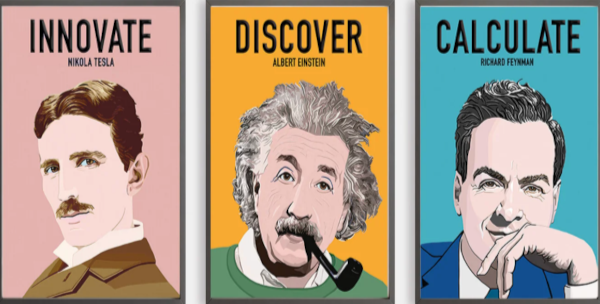
AI as the Ally of Neurodivergent Genius: Ushering in the Next Renaissance
Get ready for tens of thousands of Einsteins, Teslas, Curies, Ramanjans
Throughout history, society has celebrated genius—those rare individuals who see the world not just differently, but more deeply. Einstein, Tesla, Curie, Ramanujan, and many others possessed astonishingly divergent cognitive styles that allowed them to uncover the hidden architecture of the universe. Yet even among these luminaries, one can detect a common tension: the extraordinary mind often wrestles to fully harness and communicate the full range of its insights.
This is especially true for many neurodivergent individuals today.
The Paradox of Genius
While some are able to mold their mental symphonies into structured theories and share them with the world, others with equal brilliance may struggle to do so. The flood of ideas can be overwhelming. The mind races ahead, forming intricate patterns and radical connections, but the hands and mouth can’t keep pace. Organization falters. Focus drifts. The vision remains brilliant, but fragmented. The world, in turn, may never see the full scope of these contributions.
Enter AI: The Muse, Editor, and Collaborator
Artificial Intelligence is not merely a tool—it is a transformative cognitive ally. Especially for neurodiverse minds, AI can function as:
-
A Coherent Counselor Editor: Helping translate expansive, abstract thought into structured, communicable form.
-
A Research Assistant: Instantly finding supporting evidence, comparative ideas, or historic precedents.
-
A Cataloguer: Organizing abundant insights into themes, hierarchies, or step-by-step outputs.
-
A Patient Collaborator: Always ready to revisit, review, and refine—without judgment or exhaustion.
Rather than suppressing divergent thinking, AI enhances and stabilizes it. It becomes the scaffolding for the cathedral of thought many neurodiverse minds are capable of building—but have never before had the means to fully construct and share.
The Coming Renaissance of the Many, Not the Few
The first Renaissance was born of a confluence of ideas, arts, and technologies—but it was limited to a narrow group with the right combination of access, discipline, and support. This time is different. The AI Renaissance could be open to everyone—especially those whose genius has been under-recognized simply because it didn’t conform to old frameworks of expression.
Neurodiverse consciousness, once seen as a challenge, may in fact be the seedbed of the greatest human flourishing yet to come. With AI as midwife, we may finally unleash the full power of collective human insight—diverse, expansive, nonlinear, and utterly transformative.